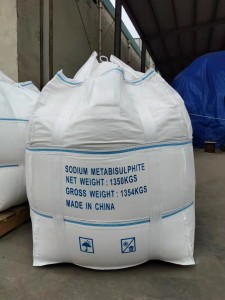Sodium metabisulfite, a versatile chemical compound, has garnered significant attention in recent global news due to its wide-ranging applications and implications in various industries. Commonly used as a preservative, antioxidant, and bleaching agent, sodium metabisulfite plays a crucial role in food processing, winemaking, and water treatment.
Recent reports highlight the increasing demand for sodium metabisulfite in the food and beverage sector, particularly as consumers become more health-conscious and seek products with fewer preservatives. This shift has prompted manufacturers to explore natural alternatives, yet sodium metabisulfite remains a staple due to its effectiveness and cost-efficiency. The global market for this compound is projected to grow, driven by its essential role in maintaining food quality and safety.
In the realm of winemaking, sodium metabisulfite is celebrated for its ability to prevent oxidation and spoilage, ensuring that wines retain their intended flavors and aromas. Recent studies have focused on optimizing its use, balancing the need for preservation with the desire for organic and natural wine production. This has sparked discussions among vintners about sustainable practices and the future of winemaking.
Moreover, environmental concerns surrounding sodium metabisulfite have emerged in global news. While it is generally recognized as safe, improper disposal can lead to environmental hazards. Regulatory bodies are increasingly scrutinizing its use, prompting industries to adopt more sustainable practices. Innovations in waste management and recycling methods are being explored to mitigate the environmental impact of sodium metabisulfite.
Post time: Oct-10-2024









